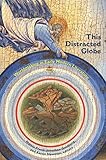This Distracted Globe : Worldmaking in Early Modern Literature / Jonathan Goldberg, Karen Newman; ed. by Marcie Frank.
Material type: TextPublisher: New York, NY : Fordham University Press, [2016]Copyright date: ©2016Description: 1 online resource (256 p.)Content type:
TextPublisher: New York, NY : Fordham University Press, [2016]Copyright date: ©2016Description: 1 online resource (256 p.)Content type: - 9780823270293
- 9780823270316
- online - DeGruyter
- Issued also in print.
| Item type | Current library | Call number | URL | Status | Notes | Barcode | |
|---|---|---|---|---|---|---|---|
 eBook
eBook
|
Biblioteca "Angelicum" Pont. Univ. S.Tommaso d'Aquino Nuvola online | online - DeGruyter (Browse shelf(Opens below)) | Online access | Not for loan (Accesso limitato) | Accesso per gli utenti autorizzati / Access for authorized users | (dgr)9780823270316 |
Frontmatter -- Contents -- Preface -- Introduction: World Enough and Time -- Part I. Materiality -- 1. Worldly Muck: Translating Matter in Book 2 of The Faerie Queene -- 2. Extreme Cary -- 3. Marlowe's Footstools -- Part II. Sociality -- 4. "Who Is Speaking Here?": Shakespeare's Sonnets, Modern Authorship, and the Contemporary University -- 5. Hamlet and the Truth about Friendship -- 6. "Racked . . . to the Uttermost": The Verges of Love and Subjecthood in The Merchant of Venice -- 7. Cities of the Stranger -- Part III. Universality -- 8. What It Feels Like to Be a Body: Humoralism, Cognitivism, and the Sociological Horizon of Early Modern Religion -- 9. Woman as World: The Female Microcosm / Macrocosm in Shakespeare and Donne -- 10. The Nether Lands of Chouboli's Dastan -- Acknowledgments -- List of Contributors -- Index
restricted access online access with authorization star
http://purl.org/coar/access_right/c_16ec
Worldmaking takes many forms in early modern literature and thus challenges any single interpretive approach. The essays in this collection investigate the material stuff of the world in Spenser, Cary, and Marlowe; the sociable bonds of authorship, sexuality, and sovereignty in Shakespeare and others; and the universal status of spirit, gender, and empire in the worlds of Vaughan, Donne, and the dastan (tale) of Chouboli, a Rajasthani princess. Together, these essays make the case that to address what it takes to make a world in the early modern period requires the kinds of thinking exemplified by theory.
Issued also in print.
Mode of access: Internet via World Wide Web.
In English.
Description based on online resource; title from PDF title page (publisher's Web site, viewed 02. Mrz 2022)


